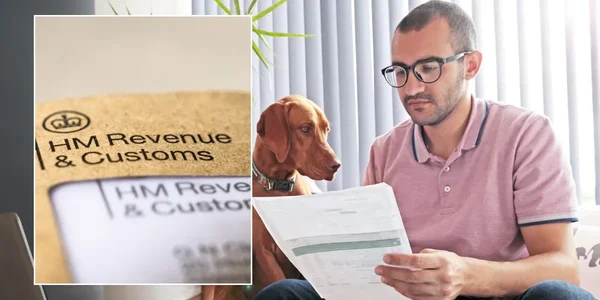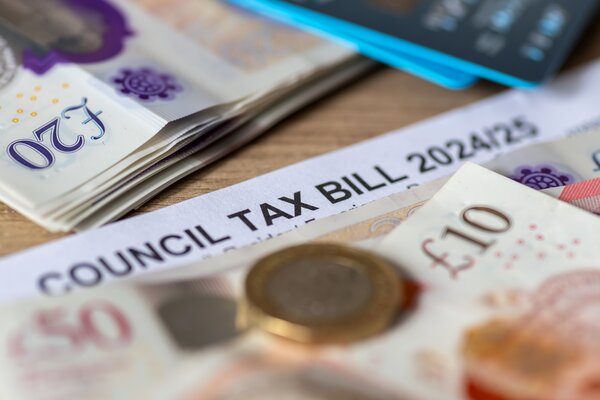Breaking It Down
Holding cryptocurrency in the UK doesn’t mean you can ignore tax implications. HMRC has specific rules about when crypto becomes taxable, even if you haven’t converted it to pounds.
This article explains how crypto is subject to tax in the UK, including the main rules and tax implications you need to know.
Some crypto activities trigger tax liability regardless of whether you’ve sold for traditional currency. Understanding these rules is essential to avoid unexpected tax bills and penalties.
Pie tax‘s crypto tax calculator automatically tracks all your transactions across exchanges and wallets, saving you hours of spreadsheet work. Or if you’re just here to get to grips with it all, let’s break it down!
What Counts as a Taxable Event for Crypto in the UK?
Simply holding cryptocurrency is not a taxable event in the UK. Your Bitcoin or Ethereum can sit in your wallet gaining value for years without creating any tax liability.
Converting crypto to pounds triggers Capital Gains Tax. This is the most obvious taxable event that most crypto holders understand.
HMRC views crypto as property, not currency, for tax purposes. This classification fundamentally shapes how and when your crypto becomes taxable. The tax treatment of cryptocurrency activities is determined by HMRC's rules, which set out how different transactions are classified and taxed. Crypto is taxed either as Capital Gains Tax or Income Tax, depending on whether you are disposing of assets or earning crypto through activities like mining or staking.
Additionally, crypto exchanges report certain user transaction data to HMRC, especially for accounts with significant activity or upon request.

Do I Pay Tax on Crypto If I Haven't Sold to Pounds in the UK?
No tax is due on paper gains when just holding cryptocurrency. If your Bitcoin doubles in value but stays in your wallet, HMRC won’t ask for a penny.
Tax is only triggered when you “dispose” of your cryptocurrency. This includes selling, trading, gifting, or using it to purchase goods or services. When a taxable event occurs, the applicable tax rate will determine how much tax you owe on your gains.
HMRC doesn’t tax potential profits, only realised gains. In fact, only gains are taxed—not the entire value of your holdings. Your crypto can go to the moon and back, but until you make a disposal, there’s no tax to pay.
Market value fluctuations alone don’t create tax liability. You can watch your portfolio value rise and fall without tax consequences.
When Crypto Becomes Taxable Without Converting to Pounds
Swapping between cryptocurrencies is considered a disposal by HMRC. If you trade Bitcoin for Ethereum, you’ve made a taxable disposal of your Bitcoin. When you sell crypto assets for another cryptocurrency or fiat currency, this is a taxable event and may trigger Capital Gains Tax.
Using crypto to buy goods or services counts as a taxable event. Buying a coffee with Bitcoin? That’s a disposal for tax purposes. This is treated similarly to selling crypto for fiat currency, and you may need to calculate any gain for tax reporting.
Gifting crypto to anyone other than your spouse triggers tax assessment. The tax is calculated based on the market value at the time of gifting. If your gain exceeds the annual allowance, you will have a taxable gain that is subject to Capital Gains Tax.
Moving crypto between your own wallets is NOT taxable. This is simply transferring your assets, not disposing of them. However, moving crypto is not taxable unless it is converted to fiat currency.
Staking rewards are typically taxable as income when received. You’ll pay Income Tax on their pound value at that point, and potentially Capital Gains Tax later.

Income Tax vs Capital Gains Tax for Crypto
Income Tax applies to crypto you receive as income. Mining rewards, staking yields, and airdrops all fall into this category.
Capital Gains Tax applies when you dispose of crypto assets for more than you paid. This includes selling for pounds or trading for other cryptocurrencies.
Income Tax rates (20-45%) are often higher than CGT rates (10-20%). Your total income, including crypto income, determines your income tax band, which sets the rate applied to your crypto earnings. Crypto income is taxed at your normal income tax rate, just like your other earnings. How your crypto activity is classified can significantly impact your tax bill.
The annual tax-free Capital Gains allowance (£12,300 for 2023/24) can help reduce liability. Your personal allowance also affects how much of your crypto income is taxable, as only income above this threshold is subject to tax. I once saved nearly £1,000 by timing my disposals across two tax years.
Different record-keeping is needed for income versus capital gains. For income, record the pound value when received; for capital gains, track acquisition and disposal details. Some crypto earnings, such as staking or mining, may be classified as miscellaneous income for tax purposes.
If your crypto activities are considered business-like, such as frequent trading or mining, the resulting trading profits are subject to income tax and national insurance. In these cases, you may also be liable for business tax, as HMRC treats such activities under business tax rules.
Common Crypto Tax Mistakes to Avoid
Assuming no tax liability until converting to pounds is a major misconception. Crypto-to-crypto trades are taxable disposals that HMRC expects you to report.
Failing to keep records of acquisition costs and dates makes tax calculation nearly impossible. HMRC expects detailed records of all your crypto activity.
Missing cryptocurrency-to-cryptocurrency transactions in your tax return is common but risky. HMRC is increasingly focusing on crypto compliance. HMRC is also actively working to detect and prevent crypto tax evasion by monitoring transactions and obtaining data from exchanges.
Not declaring staking or mining income can lead to penalties. These are taxable when received, not when converted to pounds. Failing to declare this income can result in unpaid tax, which may attract interest, penalties, and enforcement action from HMRC.
Many crypto users are unaware of tax implications for airdrops and forks. These may be taxable as income when you gain control of the new tokens.

Final Thoughts
The UK tax system doesn’t tax unrealised crypto gains, but many activities beyond selling to pounds are taxable. Understanding the distinction is crucial.
HMRC expects full disclosure of all taxable crypto events. This applies regardless of whether you’ve converted to traditional currency.
Maintaining detailed records of all transactions is critical for accurate reporting. Good record-keeping can save you significant stress at tax time. Generating a capital gains summary helps ensure all gains are properly accounted for and reported. Accurate records are essential for preparing your tax report and generating a comprehensive crypto tax report for HMRC.
When in doubt about your crypto tax obligations, seek professional advice. A tax specialist familiar with cryptocurrency can provide tailored guidance. Planning ahead allows you to offset capital gains with losses, carry losses forward to future tax years, and reduce your net capital gains, especially if you have other capital gains to consider. This can help you optimize your tax position for future gains and ensure compliance with HMRC requirements.
Pie.tax: Simplifying Do I Pay Tax on Crypto If I Haven't Sold UK Tax
Navigating crypto taxes shouldn't be as volatile as the market itself. The UK's first personal tax app makes crypto tax reporting straightforward.
Pie tax connects with major exchanges and wallets to automatically track your transactions. We calculate your tax liability in real-time as you trade.
Our platform handles complex scenarios like DeFi staking and mining income. We correctly apply HMRC's share pooling rules without you needing to become a tax expert.
We provide clear reports ready for your Self Assessment. All reports come with full audit trails that satisfy HMRC requirements. Fancy seeing how it works? Take a look at the Pie.tax app to see how we can help with your crypto tax situation.










